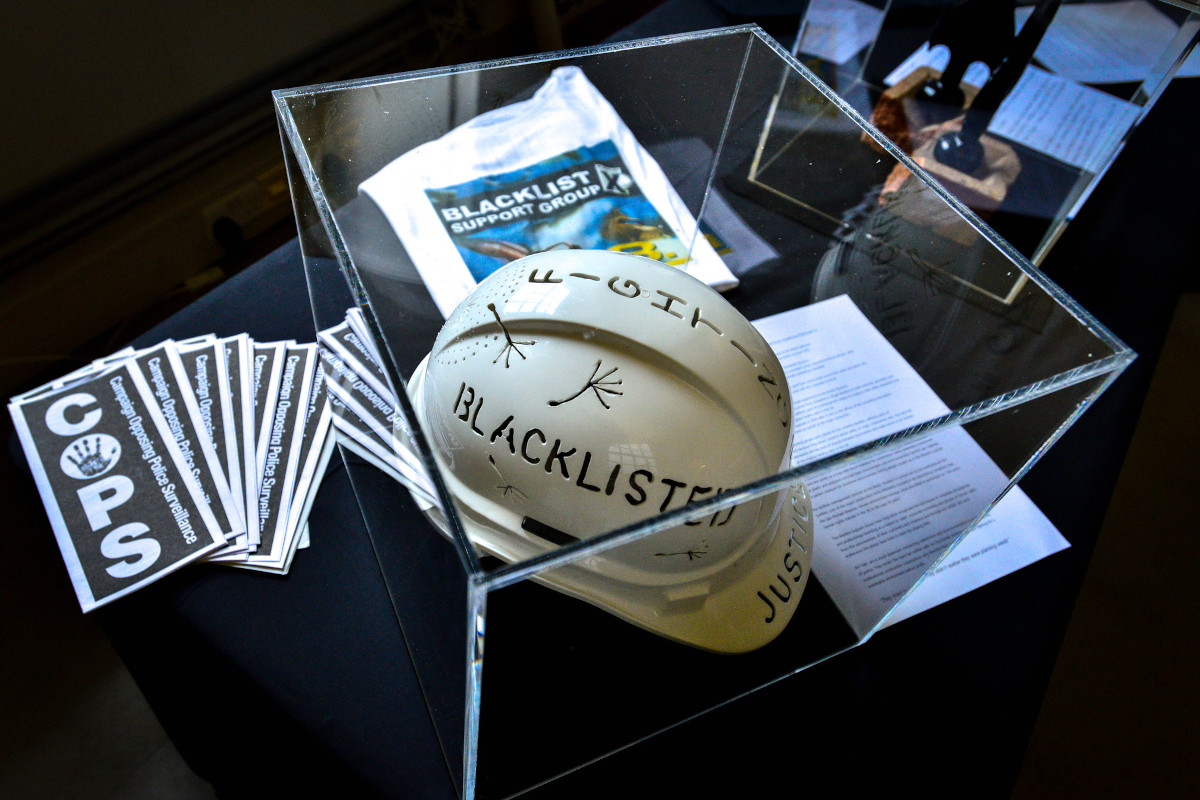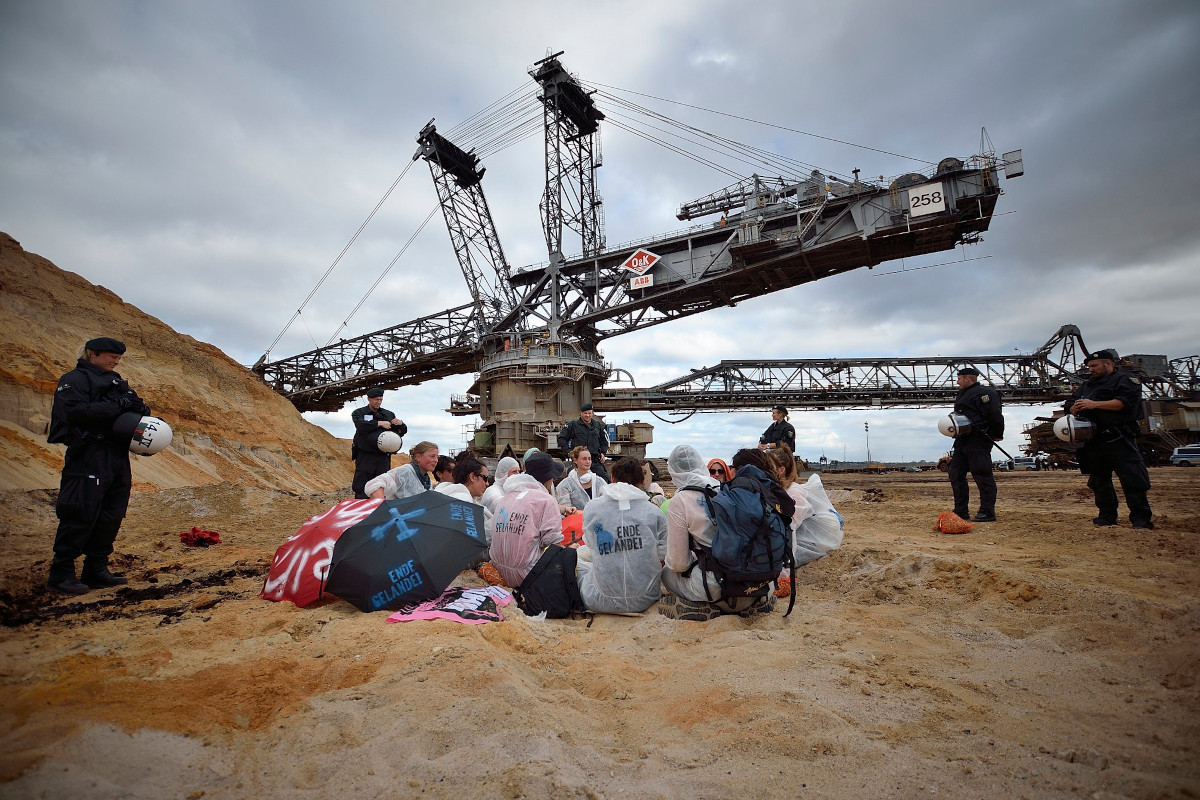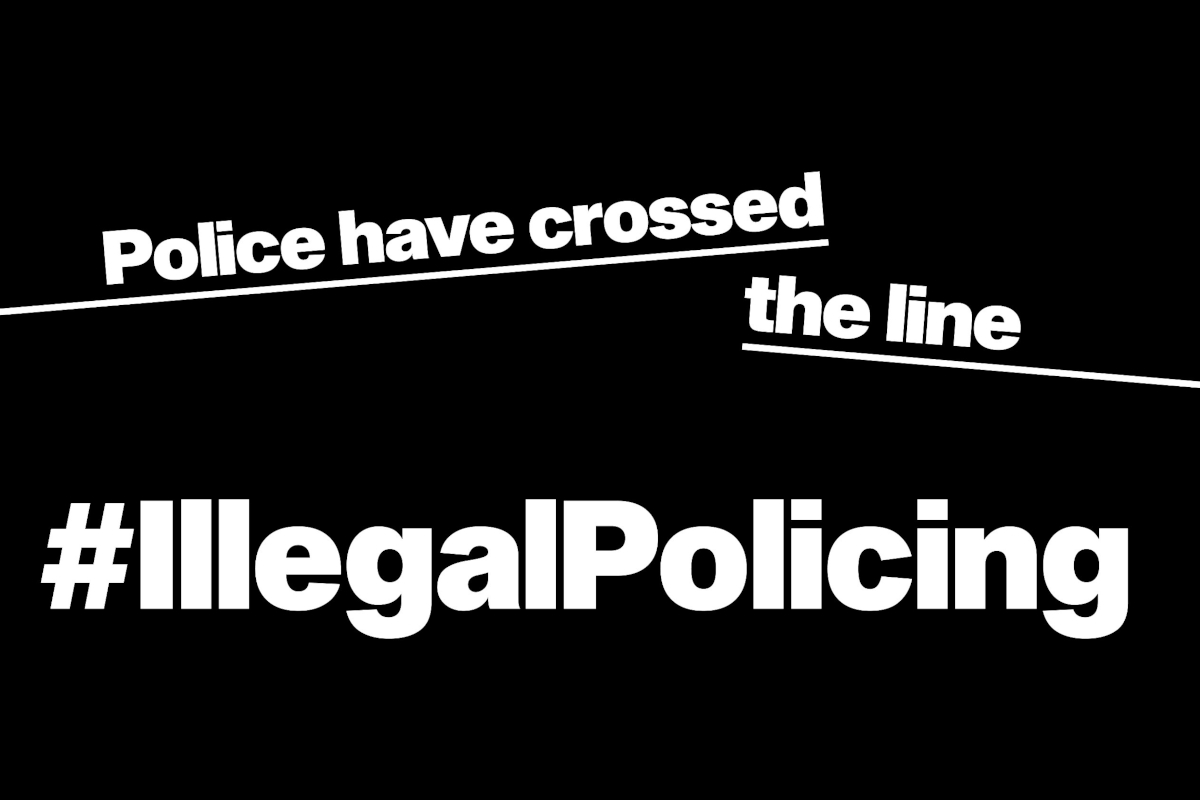UK: Undercover policing: new archive sheds light on the spycops scandal
Topic
Country/Region
03 July 2025
In 2010, a police spy was uncovered in the UK environmental movement. His exposure set off a chain of events that led the government to announce an official Undercover Policing Inquiry. Now, a new archive gathers all the documents released by that inquiry since public hearings began in 2020. It is designed to help activists continue the fight against political policing and state secrecy, and to push for transparency and accountability.
Support our work: become a Friend of Statewatch from as little as £1/€1 per month.

Image: Sleeves Rolled Up, CC BY-NC-SA 2.0
Spycops scandal
The spycops scandal began in 2010 with the exposure of Mark Kennedy, who infilitrated the British environmental movement for seven years. More undercover officers were exposed in the years that followed.
It ultimately transpired that hundreds of activist groups and justice campaigns have been infiltrated and spied on by the British police since 1968.
Women were deceived into intimate relationships by officers, the police stole the identities of dead children, and campaigns for justice for people murdered by racists – such as Stephen Lawrence – were undermined.
The Conservative government announced the Undercover Policing Inquiry (UCPI) in 2014. Public hearings have been ongoing since 2020.
The UCPI covers deployments in England and Wales. Attempts to have the geographic scope broadened, to cover the activities of spycops in Scotland, Ireland and continental Europe, failed.
New document archive
Vast quantities of official documents have been disclosed as part of the UCPI.
To navigate this avalanche of paperwork, the Undercover Research Group (URG) has gathered and organised the documents on a new website, Spycops Research.
Launched in April this year, Spycops Research makes the material released during the Undercover Policing Inquiry (UCPI) accessible to all, and aims to set an example for future public inquiries.
It is designed to help activists continue the fight against political policing and state secrecy, and to push for transparency and accountability.
Documents on the Special Demonstration Squad
The starting point for the UCPI is the formation of the Special Demonstration Squad (SDS).
The SDS was a unit of London’s Metropolitan Police set up specifically to infiltrate and undermine political campaigns. It was established in 1968 in response to demonstrations in London against the Vietnam War.
The first trove of documents presented on Spycops Research covers the work of the Special Demonstration Squad from its formation until 1982.
Alongside the documents is an initial interlinked collection of profiles and articles covering the period from 1968 to 1972.
The documents and related articles will be expanded in sequential order, as the UCPI releases more information that the URG then analyses.
URG welcomes support in carrying out that work and is seeking volunteers to help tag documents and write profiles. They can be contacted via their website.
What to expect
Spycops Research consists of two major parts, the disclosure database and a growing collection of profiles and analyses.
Due to the large volume of documents, the site offers several ways to access the material, depending on the topic of interest. However, it does assume that the user already has some understanding of the issues.
Profiles and analyses
The site can be explored by subject - such as by particular spycops, their tradecraft, relationships, Inquiry procedures or other issues – through a wiki-style network of profiles and articles.
The information can be filtered to find, for instance, specific officers, issues or inquiry procedures. These are explained and the associated documents presented in context.
For example, there are complete lists of undercover nominals, including officers' cover names and real names (where known), with profiles of each officer and their documents.
The articles include analyses of the SDS annual reports and the involvement of the Home Office. Analysis of the close cooperation between the police, Home Office and MI5 (the UK’s domestic intelligence agency) is in the pipeline.
Document Database
A separate Document Database presents the vast quantity of documents released by the UCPI, and a library of background material.
Each of these chronological databases is searchable by keyword, and allows filtering to narrow down the results.
Disclosure includes all the files released by the Inquiry as part of its investigations. This includes the contemporaneous reports of spycops and related managerial correspondence.
Procedural includes all documents from the moment the UCPI started in 2015 until the hearings started, including correspondence and notes of meetings with MI5.
Statements and Transcripts has all witness statements, opening and closing statements, and the transcripts of the UCPI hearings.
The Library is a collection of background material to provide the broader context of the spycops scandal, enabling a more rounded understanding of the topic.
Preserving history
Spycops Research future-proofs valuable historic material on the spycops scandal to prevent it disappearing.
There is no guarantee that the official UCPI website will stay online once the inquiry is over.
The website should therefore provide an invaluable resource for anyone affected by, fighting against or simply interested in the spycops scandal.
The URG was founded when Mark Kennedy was first exposed, and has worked for years to reveal, monitor and analyse political policing in the UK. The group was instrumental in exposing more officers and supporting the investigations of those targeted. This first phase of Spycops Research will be followed by many more.
Our work is only possible with your support.
Become a Friend of Statewatch from as little as £1/€1 per month.
Further reading

Environmental activism under the EU counter-terror microscope
Next week, EU and member state officials will discuss “the role of climate change and environmental concerns in violent extremist and terrorist radicalisation.” A discussion paper for the meeting, obtained by Statewatch, considers the threat posed by “violent left-wing and anarchist extremism” – a heading under which a number of prominent environmental protest groups are mentioned. The inclusion of peaceful but disruptive groups in the paper may legitimate further police surveillance and infiltration, legal harassment and government crackdowns – a problem identified as “a major threat to human rights and democracy” by a UN Special Rapporteur.
“Call them crazy”: Criminalisation of activists undermines rule of law in the EU
The Dutch police continue to disregard the rule of law to criminalise the pacifist activist Frank van der Linde. In recent years, his personal data has been sent to Europol, he has been labelled a terrorist, and police have suggested he be referred to a psychiatric facility. Far from an isolated case, van der Linde’s story shows just how far police in Europe will go to criminalise the right to protest and stifle political dissent.

"Police have crossed the line": Statement on police infiltration in social movements in recent years in Barcelona
Following recent revelations about undercover police officers infilitrating social mvoements by using sexual and intimate relationships as cover, 88 organisations - including Statewatch - have joined a statement initiated by the legal centre Irídia calling for a "thorough, effective and independent investigation" and for an end to "any further police operations of a similar nature". Two undercover officers have been unmasked in Barcelona in the last nine months, and more recently another was outed in Valencia. Referring to similar cases in the UK, the statement notes that "the infiltration of police officers into social and political movements is a practice that has also been used in other countries."
Spotted an error? If you've spotted a problem with this page, just click once to let us know.
